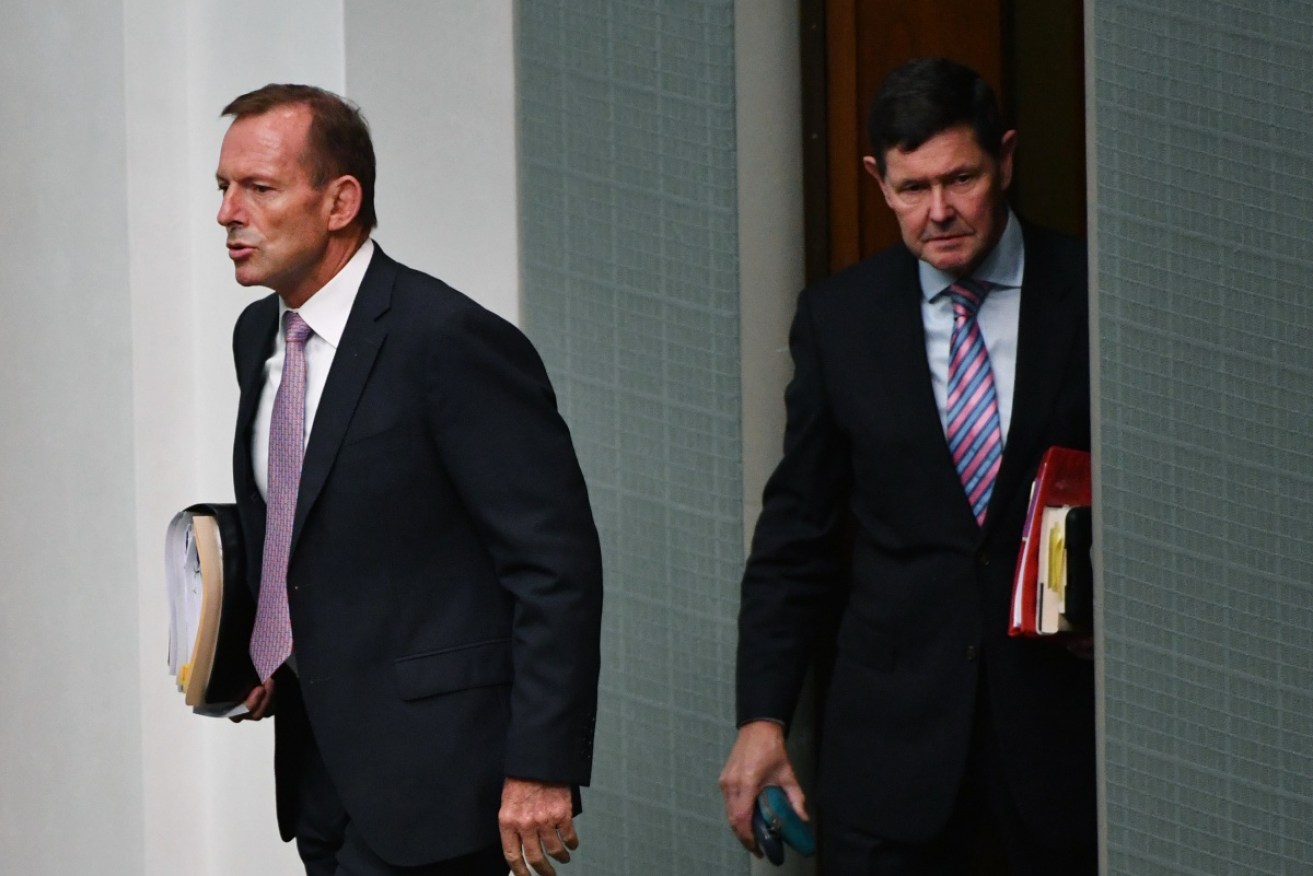Turnbull’s energy soap opera continues with the Monash Forum


The pro-coal Monash Forum includes Liberal backbench grandees Tony Abbott and Kevin Andrews. AAP
Government in Australia is broken. There is no cause for immediate alarm: services will continue, moneys owed will be paid and public servants will be employed. But government as a guardian of the public good, architect of principled policy and diligent steward of the economy has to all intents and purposes ground to a halt.
We have reached this parlous state because the incumbent administration, the Turnbull government, is so riven by internal discord over energy policy that it has been rendered virtually immobile. Enter the “Monash Forum”.
By rights, the emergence of this pro-coal ginger group, led by washed up has-beens on the government backbench, should have been of passing interest only. And even then as fodder for cartoonists and satirists.
Instead, the very public creation of this group, ostensibly to address consumer concerns about the impact of rising power prices on the cost of living, has paralysed the already moribund Turnbull government.
It is not difficult to see what motivates the Monash Forum, the founders of which have brazenly appropriated the name of war hero General Sir John Monash. Those founders include fallen Liberal grandees Tony Abbott, Kevin Andrews and Eric Abetz, Liberal MP and chairman of the backbench energy committee Craig Kelly, Nationals MP George Christensen and disgraced former Nationals leader Barnaby Joyce.
They have in common a pathological dislike of Prime Minister Malcolm Turnbull and an abiding love of coal.
The centrepiece of this highly compromised splinter group is a proposal to build a taxpayer-funded $4 billion coal-fired power station.
A prime minister in command of his party and his government would by now have debunked the standing of the group and the substance of its proposal. But Mr Turnbull has no such authority and the mendacity of this group has gone virtually unchallenged.
Pity the poor consumer – and voter – faced with this never-ending energy soap opera. Why, they must be asking, is it so difficult for the Australian Government to arrive at a policy position that has not only their interests at heart but also of the environment and the economy?
The Monash Forum is shameful in its cynicism. It promotes the primacy of coal in the face of scientific evidence and commercial judgment to the contrary; it is even willing to act against its members’ own normally sacrosanct pro-market inclinations.
It does so with the blatant intention of either emasculating or destroying Mr Turnbull’s leadership and in blind obedience to the quackery of climate-change denial.
Far from being an incidental side-show, the Monash Forum is using energy as a political and ideological weapon at the expense of good policy. It is wilfully placing a brake on vital progress that needs to be made in creating a viable and sustainable energy system – for consumers, business and investors.
The forum’s shadow looms very deliberately over the future of the Turnbull government’s proposed National Energy Guarantee system – itself a compromise on Chief Scientist Alan Finkel’s Clean Energy Target forced on Mr Turnbull by pro-coal recalcitrants in his ranks.
Coal is the dirty power source of yesteryear but the government is so cowed on the issue that it cannot say so, let alone set policy accordingly.
On energy the Turnbull government has no credibility, only desperation. There can be no other explanation for the spectacle of Mr Turnbull trying to strong-arm private energy companies to make investments in coal they do not want to make, his only purpose to appease coal supporters on the backbench.
Consumers, in whose name this farce plays out, have every reason to doubt the wisdom of the government’s half-baked “solutions” to energy certainty and affordability. Australians should also be angry that instead of ensuring that Australia is a global player in renewable energy technology – thus attracting investment and creating jobs – the government is squabbling with itself over the future of coal.
More broadly, business should be concerned that economic policy-making is at such a low ebb.
Mr Turnbull insists that Australia’s future as a destination for overseas capital depends on lowering the corporate tax rate. He would do well to consider that Australia’s “banana republic” antics on energy policy is the kind of chaos that makes overseas investors very nervous regardless of the tax rate.








